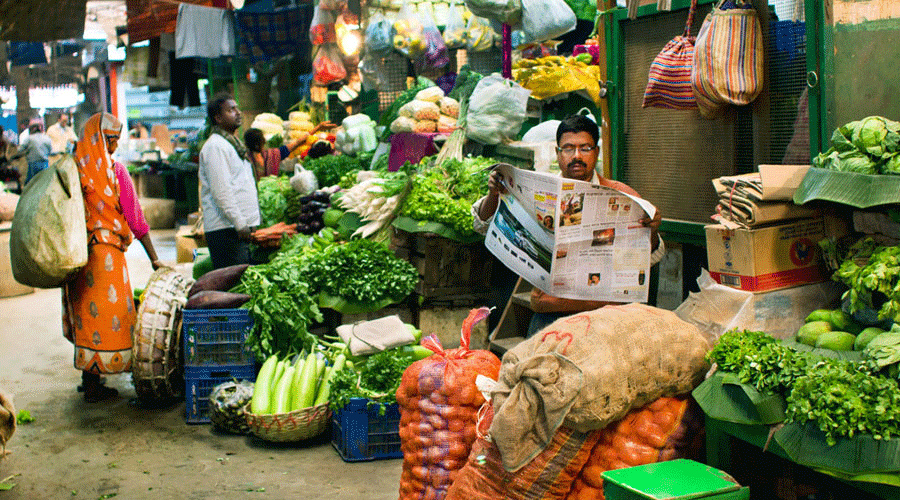A Kasba resident bought chicken for Rs 200 a kg on Friday from a neighbourhood market. About a week back, chicken sold for Rs 165 a kg there.
A Ballygunge resident bought grapes for Rs 200 a kg on Friday. A month back the price was Rs 120 a kg.
Eggs sold for Rs 70 a dozen, up from Rs 50-55 a dozen around 10 days back.
Prices of several food items started spiralling soon after stricter Covid curbs came into force last Sunday.
The suspension of suburban train services, too, has had its impact on prices. Several food items, especially fruits, were brought to the city by train.
Fruits and poultry products have witnessed a sharp rise in prices. Retail traders blame the lockdown, which has reduced the number of truck arrivals and also made the arrivals unpredictable, for the price rise.
“Fewer trucks are coming in with poultry, resulting in price rise,” said a retailer in south Calcutta. “Most of the poultry in the city’s markets comes from North 24-Parganas, Burdwan and Midnapore. The truck drivers and helpers are afraid to come because of Covid. This has caused a demand-supply mismatch and resulted in a price rise,” he said.
Among fruits, apples sold at Rs 250 a kg on Friday, up from Rs 200 about two weeks ago.
"I bought apples for Rs 250 a kg and big mosambis for Rs 30 apiece on Friday," said Manish Shaw, a Ballygunge resident.
Apart from irregular movement of trucks, wholesalers blamed low yield in Himachal Pradesh for the steep rise in the price of the fruit.
Truck operators said the recent restrictions have forced many of them to cut inter-state movement.
"From around 30,000 trucks three months back, just about 300 trucks are now entering the city," said Subhas Chandra Bose of the West Bengal Truck Operators Association. "If trucks aren't getting to take items from Calcutta to other states, how will they bring fruits or other stuff from outside?"
As for fish, there is no problem with the supply from other states but retailers aren’t turning up in enough numbers to procure them. As a result the price of fish in retail markets is shooting up despite godwons remaining well stocked.
"Earlier, retailers would turn up on Matadors or commute by suburban trains. That has stopped. The number of visitors to wholesale fish markets has dropped sharply and the impact is being felt in the retail markets," said Syed Anwar Masqueed, the secretary of the Howrah Wholesale Fish Market.











